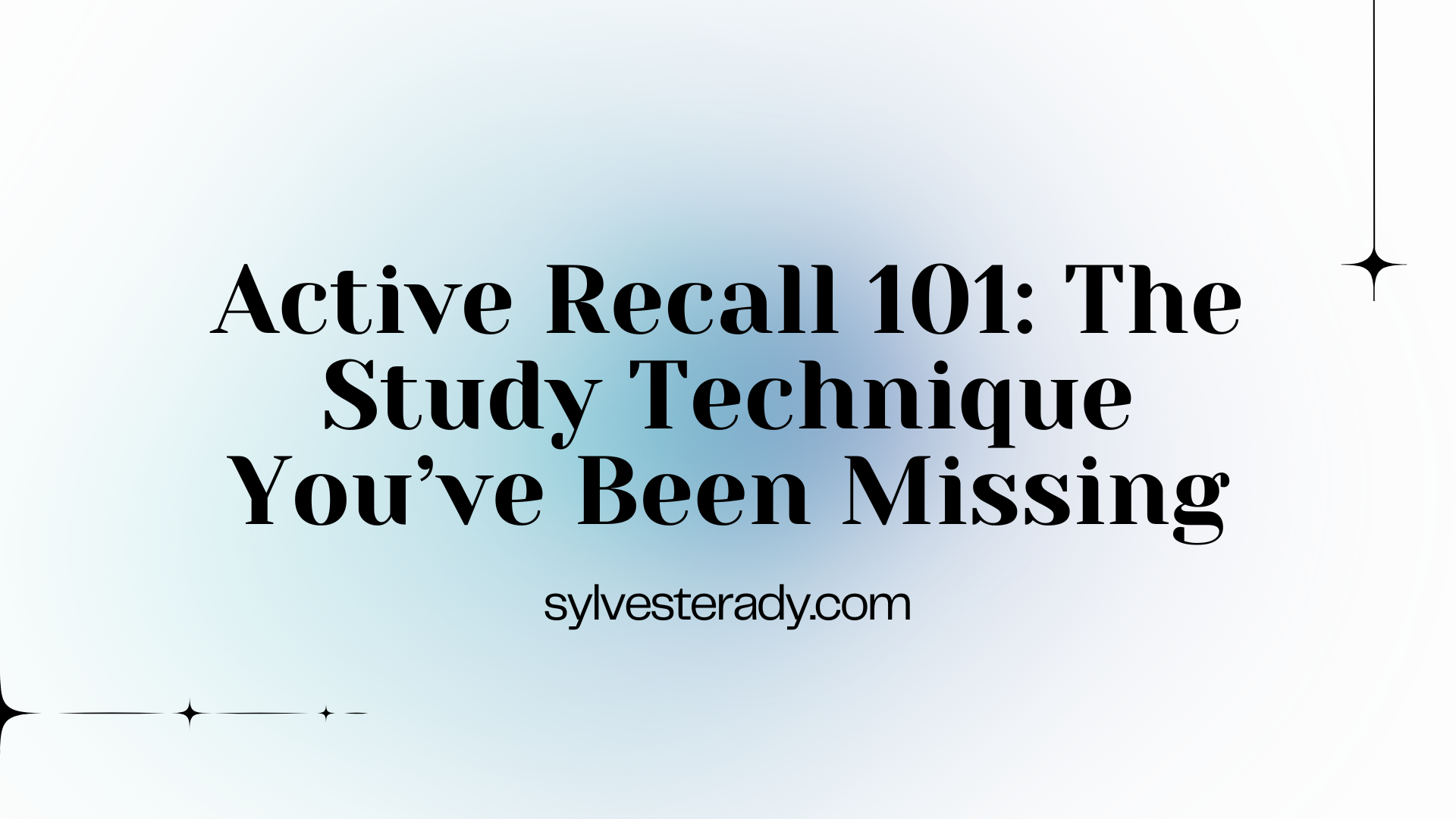Alright, let’s talk about one of my all-time favorite study techniques: active recall. If you’ve ever found yourself staring at a textbook, rereading the same paragraph for the 10th time and still not remembering a thing, this one’s for you. Active recall is like the secret sauce of studying—it’s simple, effective, and honestly, a game-changer. So, grab a cup of coffee (or tea, no judgment here), and let’s dive in.
What the Heck Is Active Recall?
Okay, so active recall is basically the opposite of passive learning. Instead of just reading or highlighting your notes (which, let’s be real, feels productive but doesn’t always stick), you actively force your brain to retrieve information. Think of it like a mental workout. You’re not just letting the info wash over you; you’re digging it up from the depths of your memory.
For example, instead of rereading your notes on the French Revolution, you’d close the book and ask yourself, “What were the main causes of the French Revolution?” Then, you’d try to answer without peeking. It’s like quizzing yourself, but way less intimidating than an actual pop quiz.
Why Does It Work So Well?
Here’s the science-y part (don’t worry, I’ll keep it simple). When you retrieve information from your memory, you’re strengthening those neural pathways. It’s like carving a path through a forest—the more you walk it, the clearer and easier it gets. Passive learning, on the other hand, is like looking at a map of the forest. Sure, you know where the path should be, but you’re not actually walking it.
Studies have shown that active recall is one of the most effective ways to retain information long-term. It’s not just about memorizing facts for a test; it’s about actually understanding and internalizing the material. Plus, it’s way more engaging than mindlessly flipping through pages.
How to Actually Do It
Now that you’re sold on the idea, let’s talk about how to put it into practice. Here are a few methods I’ve used (and loved):
Flashcards: Old school, but gold. Write a question on one side and the answer on the other. Go through them regularly, and don’t cheat by peeking! Apps like Anki or Quizlet are great for digital flashcards.
Practice Questions: If you’re studying for an exam, find past papers or create your own questions. Try to answer them without looking at your notes. It’s like a dress rehearsal for the real thing.
Teach It to Someone Else: This is my personal favorite. Grab a friend, a pet, or even a stuffed animal (no judgment here) and explain the concept to them. If you can teach it, you know it.
Summarize Without Notes: After reading a chapter or watching a lecture, close your laptop or book and try to summarize what you just learned. Bonus points if you can connect it to something else you’ve studied.
Tips to Make It Stick
Space It Out: Don’t cram all your active recall sessions into one day. Spread them out over time (this is called spaced repetition). Your brain needs time to process and store the info.
Mix It Up: Don’t just focus on one topic. Switch between different subjects or concepts. This keeps your brain on its toes and helps you make connections between ideas.
Be Consistent: Active recall works best when you do it regularly. Even 10–15 minutes a day can make a huge difference.
Don’t Stress About Getting It Wrong: It’s okay if you can’t remember everything at first. The struggle is part of the process. Just keep at it, and you’ll get better.
My Experience with Active Recall
I’ll be honest—I didn’t always use active recall. Back in high school, I was the king of highlighting and rereading. I’d spend hours “studying,” only to blank out during exams. Then, I stumbled upon active recall, and it was like a lightbulb moment.
Why You Should Give It a Try
If you’re tired of spending hours studying without seeing results, active recall might be the answer. It’s not a magic trick—it still takes effort—but it’s a smarter way to study. Plus, it’s way more interesting than passively reading the same notes over and over.
So, next time you’re hitting the books, give active recall a shot. Start small, be consistent, and see how it works for you. Who knows? It might just become your new go-to study hack.
What about you? Have you tried active recall before? Or do you have another study technique that works wonders? Let me know—I’m always on the lookout for new tips!
